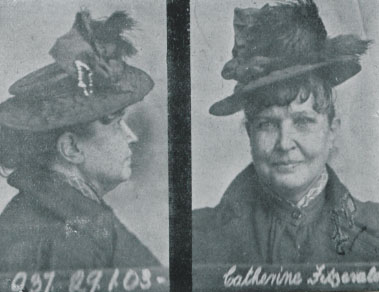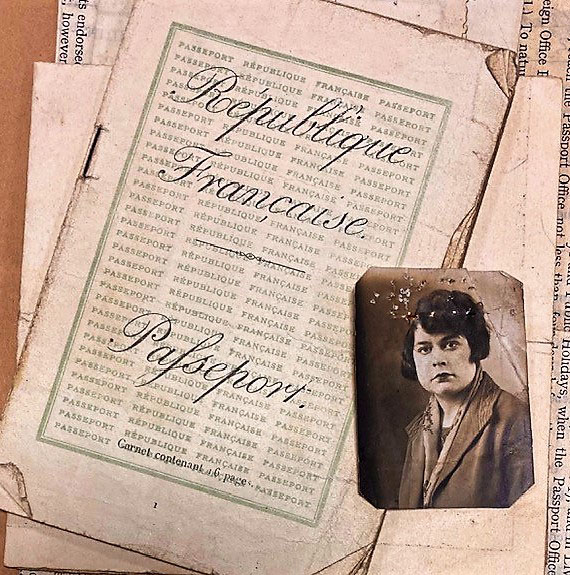Vicky Iglikowski-Broad has recently finished her final piece of work for her professional fellowship with the Wellcome Collection on ‘Co-collaboration and challenging histories’[ref]Essentially, by this I mean histories that have been historically marginalised in the mainstream, where we are often presented with significant absences or biases in the records.[/ref]. This piece of work uses the sample theme of sex work and the state as its focus, to show a case study in context.
Here, Vicky talks through how she found the experience.
When I first set out my fellowship intentions, like all of us, I did not expect to be heading into a global pandemic a few months later. Naturally, things had to change to accommodate this, and yet at the core of the fellowship there were important elements I could still take time to work and reflect on.
The challenges have meant that the focus has shifted away from testing practical frameworks for collaboration, to the developing of foundation principals to support sensitive and ethical use of records with collaborators. The final fellowship outcomes still focus on the ‘hidden voices’ in archive records, which have traditionally been driven to the margins, and how to start to address this through ethical collaboration.
Through this fellowship I have discovered my sample topic – sex work and the state – is rich in records in ways I had not realised. In 2015 Pluma Sumaq, writer, photographer and artist, wrote:
‘When you consider how expansive something like prostitution really is, it should be alarming that we rarely hear the actual voices of people who have first hand experience in this industry.’
Pluma Sumaq, ‘A Disgrace Reserved for Prostitutes: Complicity and the Beloved Community,’ in LIES: A Journal of Materialist Feminism Vol II, AK Press, 2015

This is true of society in general, and in turn reflected in archive collections. This absence of sex worker voices, speaking freely and on their own terms, is a clear archival silence that has been entrenched across The National Archives’ records.
Historically, sex workers have been medicalised, criminalised and moralised, and this is reflected now in many of the collections held by archives and research libraries. Despite this there are fascinating complexities and nuances in the records, around language, agency and intersectional identities, which the later part of the fellowship gave me the space to explore.
Challenges
The challenges have been significant for a project that depended on developing relationships, building trust and viewing original documents. I was therefore really fortunate to be able to adapt my focus to one that was more realistic to the limitations created by COVID-19 and the associated lockdowns. I was able to have a lot of remote conversations, and even a virtual placement, facilitated by the Wellcome Collection.
From my work with the Inclusion Team at Wellcome, it was clear any project should start with the key question:
What is the effect of this project on participants?
Currently the effect of a heritage project in collaboration with any marginalised groups effected by the current pandemic would potentially be unethical and exploitative. Many sex workers are fighting for day-to-day survival, particularly those that rely on street sex work that necessitates face-to-face contact. Sex workers have variable incomes, are unable to access sick pay and other support packages offered during the crisis[ref]‘COVID-19: Resources for Sex Workers,’ November 2020.[/ref]. Many sex workers charities are running emergency appeals for funds, illustrating the urgency of the impact of the pandemic on sex workers.
It very quickly became clear to me that pursuing this side of the original fellowship idea, in the current situation, would be unethical. It is not just sex workers who are likely to be in this position, but many potential collaborators. While the COVID era represents a specific moment in time, it also emphasises the general need for an ethical approach, especially in times of crisis.
As such, I have had to shift my focus, to be realistic to the current circumstances; however, with the support of the Wellcome Collection, I have still been able to:
- Significantly explore records and archival absences relating to sex workers in a government archive.
- Create ten key principles for working on challenging histories and collaborative practice in the heritage sector to inform my work.
- Develop my understanding of a trauma-informed approach to archives, with the help of a great course by the Australian Society of Archivists.
- Created a template of prompts and questions for archives and research libraries to utilise when approaching this type of work.
Discoveries in the archives
I last shared some research behind this work back in July 2020, on Reclaiming the records and Archives and agency. I was briefly able to go back in to the archives around this time, which was hugely helpful, and meant I was able to do a more thorough review of the records.

By developing a series of questions to interrogate the records, I was able to discover some unexpected collections strengths that helped highlight intersections in the historic sex worker experience; relating to male sex workers soliciting men, migrant sex workers’ experiences and sex workers we might now consider transgender (although they do not use this language themselves)[ref]This section is informed by the unpublished work of P E Szoradova, ‘Overpoliced and yet invisible: LGBT sex work history,’ 2019.[/ref]. There is an extraordinary amount of material, reflecting the scale of interest and concern of the state in the past.
The framework of questions and prompts relating to working with challenging histories and collaborators has helped me find some great archive items, from documents relating to male sex workers in the 1920s flirting with undercover police officers, to the travel documents for a sex worker entering the country for a so called ‘marriage of convenience’.
I hope the questions and prompts prove as beneficial to others working on traditionally marginalised histories. The framework is intentionally scalable to encourage all types of institutions to engage in this type of work.
I hope to share more of this archival research with you in the future!
Rewards of the fellowship
This fellowship has been more challenging than I could have expected. Despite that, the project work has been hugely rewarding. It has given me the time and space to work on a project in depth and to challenge my own thinking. Working with the Wellcome Collection has been a great learning curve, because they are so forward-thinking in the areas of inclusion and collaborative practice.
The intention is to continue to take forward the practical application of this work, particularly with current sex workers, when the situation allows.
The opportunity to give a voice back to those marginalised in archive collections has been a powerful and enriching experience, and one that I hope to continue. I am very grateful to the Research Libraries UK and The National Archives Professional Fellowship Scheme for the opportunity to do this.
Many thanks to everyone who has contributed their time to inform this work and talk to me about their experiences.